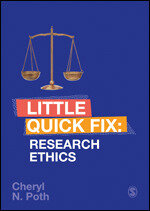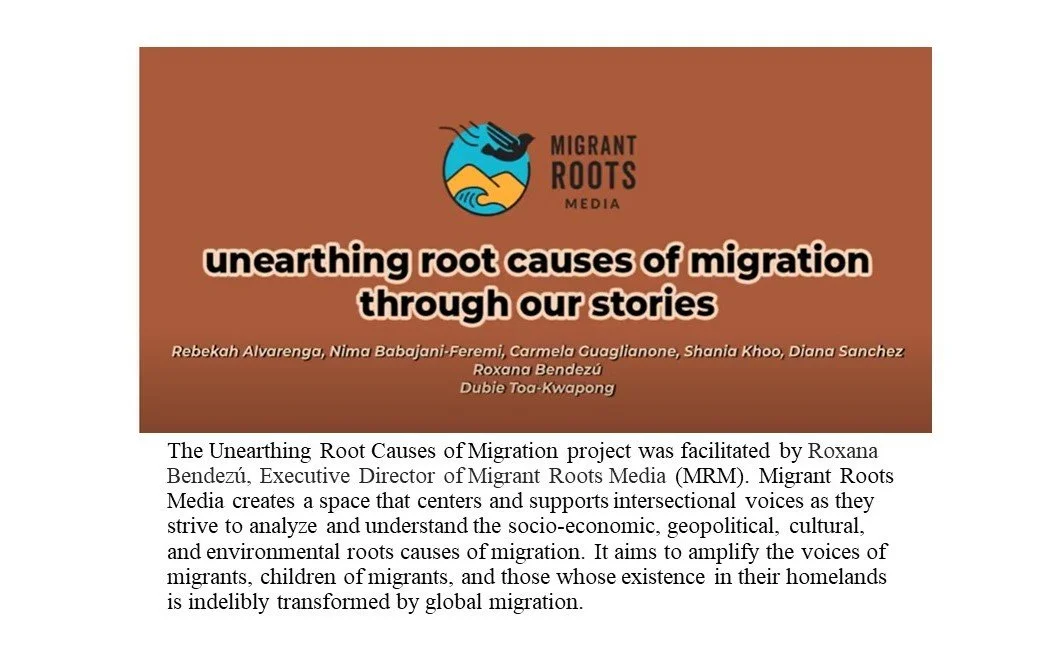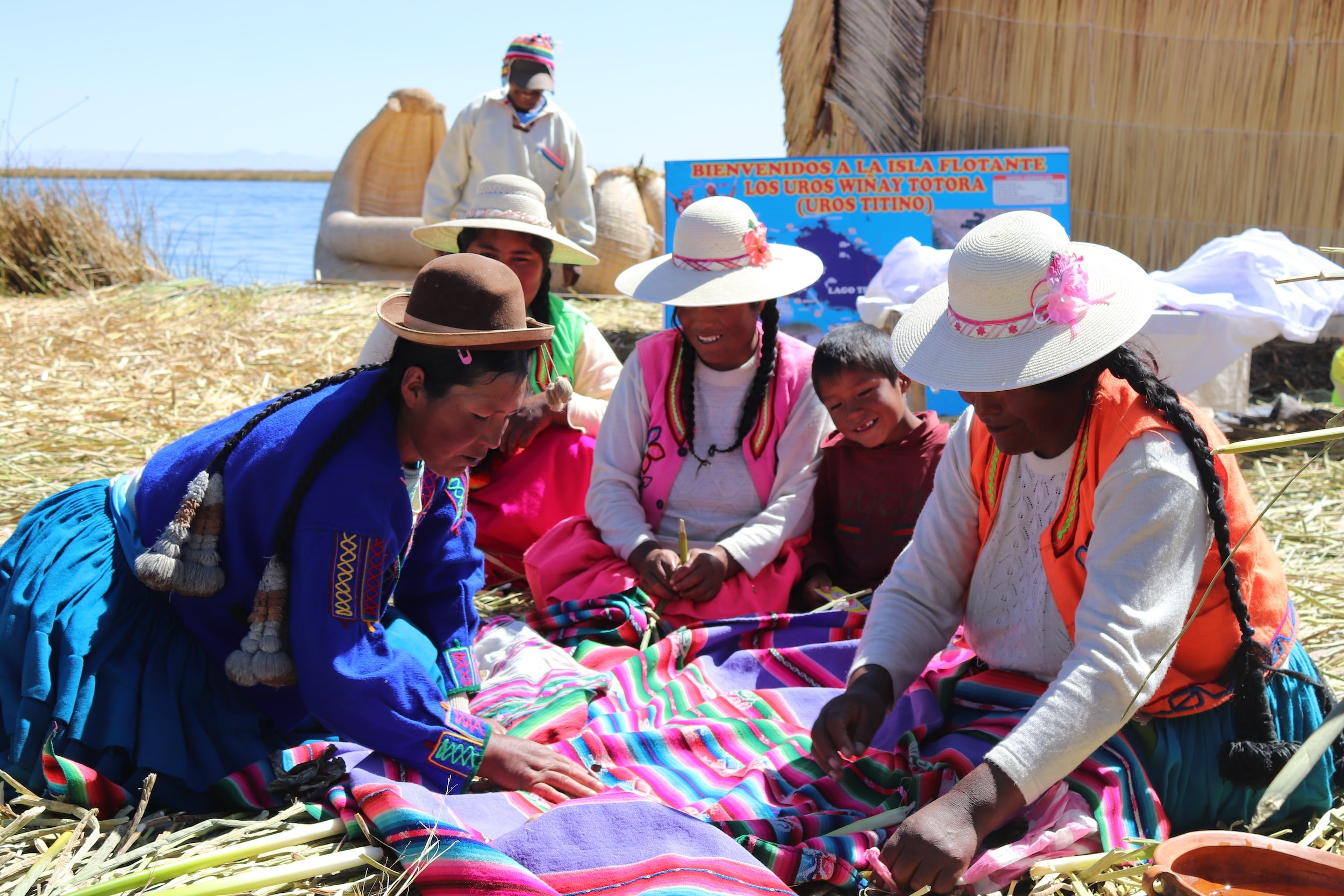Q & A about Research Ethics across Cultures
The focus for March 2021 was on Designing an Ethical Study. When we offered the Research Ethics in Practice webinar, we were flooded with questions that we did not have time to answer. I collated three pages of thoughtful queries! I've answered a couple of questions about choosing platforms that allow you to protect data, and we will continue to respond. In this post, panelist Natalia Reinoso Chavez, from the Universidad de la Sabana in Bogotá, Colombia discusses some of the critical issues raised in the webinar chat.
Q. I like the aspect of cultural humility! How do you assure the participants that the research would be beneficial to them and what do you need to do to gain their confidence?
NRC. Thank you for your question! As Cheryl Poth points out on her book Research Ethics Little Quick Fix, it is important to be honest and precise about the benefits participants are gaining from the research. Trust is a slow process, but it helps when we offer true respect about their knowledge and practices, and we present research risks, benefits, goals and process with transparency.
Related Open Access Resources:
Greene-Moton, E., & Minkler, M. (2020). Cultural Competence or Cultural Humility? Moving Beyond the Debate. Health Promotion Practice, 21(1), 142–145. https://doi.org/10.1177/1524839919884912
Lekas, H.-M., Pahl, K., & Fuller Lewis, C. (2020). Rethinking Cultural Competence: Shifting to Cultural Humility. Health Services Insights. https://doi.org/10.1177/1178632920970580
Q. I am a linguist and currently working on the language related issues of interview-based research. Did these come up at all in your project?
NRC. Thank you for your question. Language can be an important barrier. Even though Indigenous beneficiaries involved spoke Spanish as their second language, there are always information "lost in translation".
Language was a barrier for the stories of the MSC: it enhanced under-representativity as beneficiaries involved had to have Spanish as their second language.
Related Open Access Resources:
Choi, J., Kushner, K. E., Mill, J., & Lai, D. W. L. (2012). Understanding the Language, the Culture, and the Experience: Translation in Cross-Cultural Research. International Journal of Qualitative Methods, 652–665. https://doi.org/10.1177/160940691201100508
Sands, R. G., Bourjolly, J., & Roer-Strier, D. (2007). Crossing Cultural Barriers in Research Interviewing. Qualitative Social Work, 6(3), 353–372. https://doi.org/10.1177/1473325007080406
Q. Natalia, with regard to peer debriefing, is this a collaboration between the researcher and a participant about the results, to ensure they feel comfortable with the information that will be published?
NRC. Thank you for your question: Peer debriefing is different than member checking. Peer debriefing is developed with expert peers: the researcher shares his/her work, so peers can highlight important information that has not been addressed, inform about possible bias and encourage reflexivity to enhance trustworthiness.
Member checking involves participants in our research process and analysis, to enhance trustworthiness as well as ethic results. We share with them preliminary findings so they can confirm or adjust them.
Related Open Access Resources:
Mero-Jaffe, I. (2011). ‘Is that what I Said?’ Interview Transcript Approval by Participants: An Aspect of Ethics in Qualitative Research. International Journal of Qualitative Methods, 231–247. https://doi.org/10.1177/160940691101000304
Spall, S. (1998). Peer Debriefing in Qualitative Research: Emerging Operational Models. Qualitative Inquiry, 4(2), 280–292. https://doi.org/10.1177/107780049800400208
Q. Please send us the info on community ethics review!
NRC. Camilo Correal, Head of Department of Family Medicine and Public Health wrote this piece about ethics in community interventions/research. (Spanish)https://personaybioetica.unisabana.edu.co/index.php/personaybioetica/article/view/4225/pdf
In the Centro de Estudios Médicos Interculturales, we have these principles for research with/for indigenous people (Spanish!) https://cemi.org.co/cemi
Related Open Access Resources:
Bastida, E. M., Tseng, T.-S., McKeever, C., & Jack, L. (2010). Ethics and Community-Based Participatory Research: Perspectives From the Field. Health Promotion Practice, 11(1), 16–20. https://doi.org/10.1177/1524839909352841
Marlowe, J., & Tolich, M. (2015). Shifting from research governance to research ethics: A novel paradigm for ethical review in community-based research. Research Ethics, 11(4), 178–191. https://doi.org/10.1177/174701611557953
Q. What were the barriers to obtaining community consent? Was there no one who could speak for the community? Were there multiple communities/tribal groups? Did the ongoing violence/armed conflict in Choco enter in to that?
NRC. Thank you for your question. Community consent must be done with the whole community or their traditional authorities. You must assure they are properly informed and understand what the research involves, that implies translation. sometimes, you must participate in traditional methodologies as well. As we couldn´t travel, that was not achieved.
Q. Natalia touched on this a bit- on positionality of researcher. As a non-Indigenous researcher in the Indigenous space, how can I assure/reassure authenticity in keeping participants’ voice in our reports?
NRC. Thank you for your question. Allowing indigenous participants to speak for themselves is the best option. For that, you can:
-Use research methods that give you non-fragmented information. For instance, narratives or stories (texts, audio, video).
Invite participants to the analysis process (For example, Linda Liebenberg has a good example of a participatory thematic analysis within Photovoice.)
Invite participants to present results in the socialization strategies.
If we cannot do these, we must be transparent about that limitation, and present ourselves with reflexivity in the analysis process and results.
Natalia Reinoso Chávez is a Psychologist with a Master’s degree in Education and Cultural Diversity. She is the Intercultural Education coordinator in the Intercultural Medical Study Center -Centro de Estudios Médicos Interculturales- at Colombia, where she has been supporting participatory community processes for more than 10 years, aiming to promote cultural preservation, nature conservation and well-being. Natalia is an independent qualitative researcher, intercultural consultant, and lecturer at the Medicine Faculty of the Universidad de la Sabana in Bogotá, Colombia. She recently contributed the chapter, “Challenges of a Systematization of Experiences Study: Learning from a Displaced Victim Assistance Program, during COVID-19 Emergency in Ethnic Territories in Colombia” to Researching in the Age of COVID-19Volume I: Response and Reassessment.
































Do you have concerns about how to carry out data collection with vulnerable populations online? Find research strategies for reaching vulnerable people online.